Game Design: Strategies to Avoid Plagiarism and Academic Misconduct
VerifiedAdded on 2023/06/16
|6
|855
|95
Report
AI Summary
This report details the design of a game aimed at educating students about plagiarism and academic misconduct, emphasizing the importance of academic integrity for their future careers. The proposed game, "Flip-Flop Plagiarism," involves teams answering questions about plagiarism and misconduct to assess their understanding and promote ethical academic practices. The game consists of two rounds where teams pick cards with numbers, and questions related to academic misconduct or plagiarism will be asked to them. Correct answers earn points, with bonus points available for other teams if the initial team fails to answer. The report concludes that such games are crucial for fostering a responsible approach to learning and preventing students from resorting to unfair means, ultimately contributing to their knowledge development and future success. Desklib offers a wide range of resources, including past papers and solved assignments, to support students in their academic endeavors.
1 out of 6
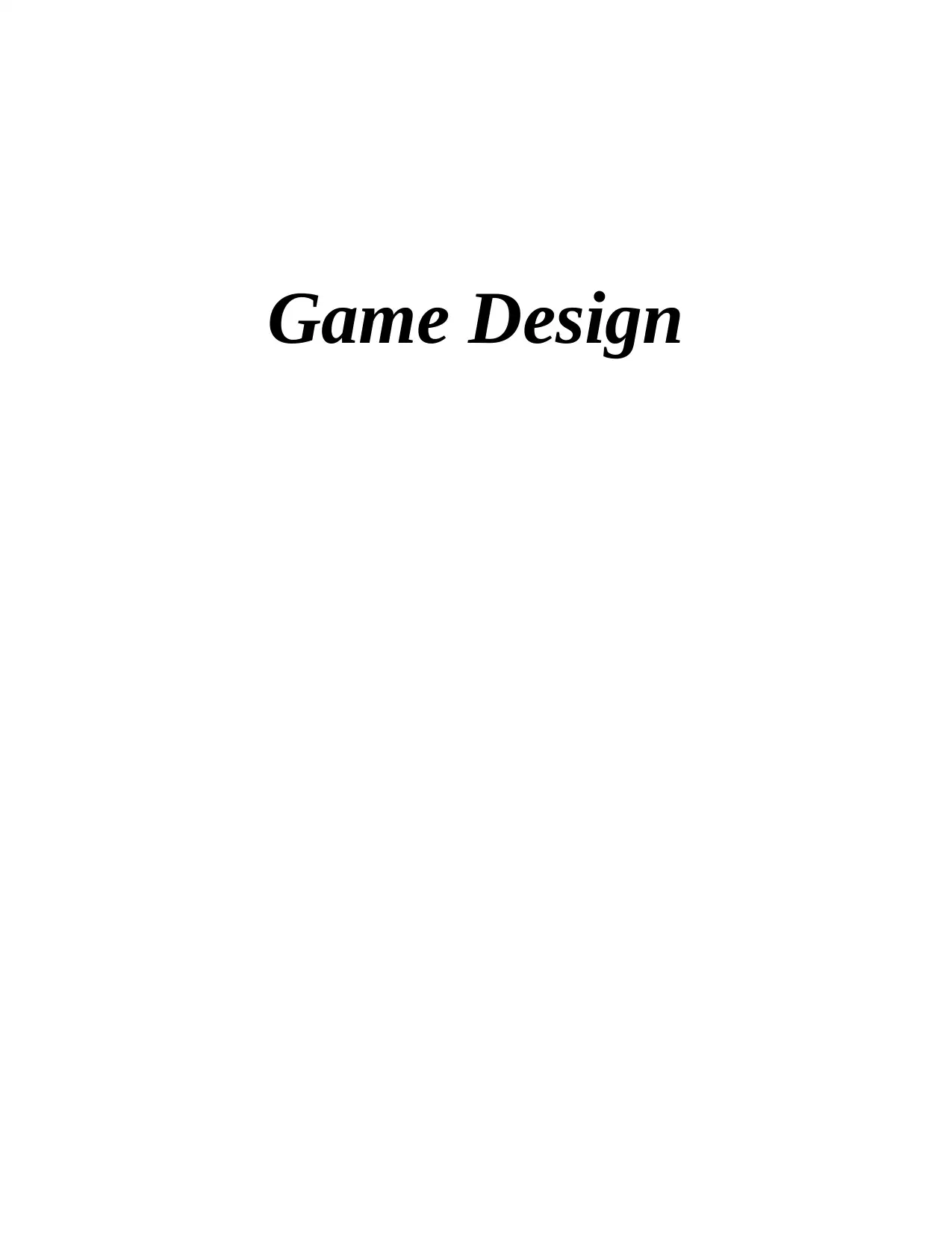
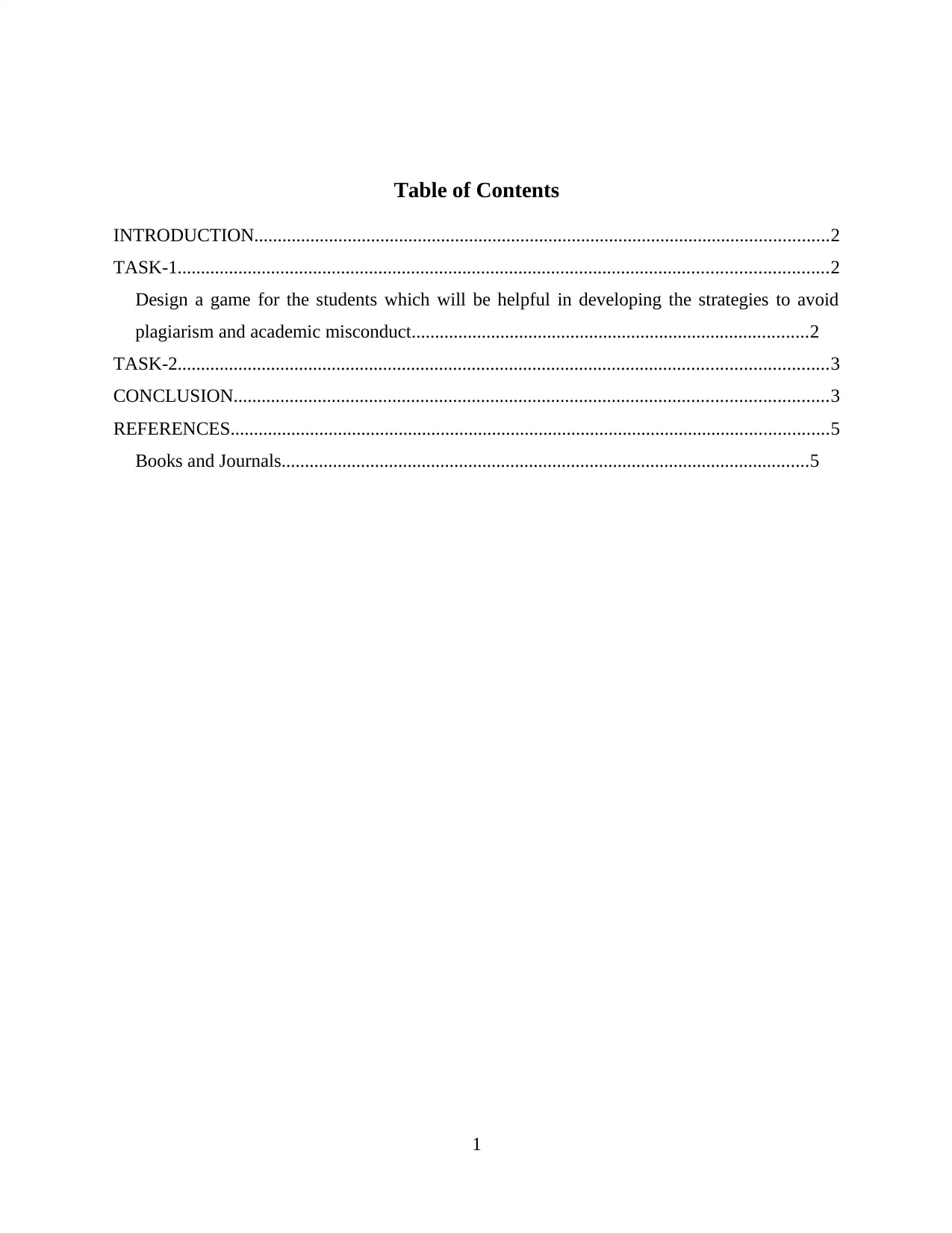
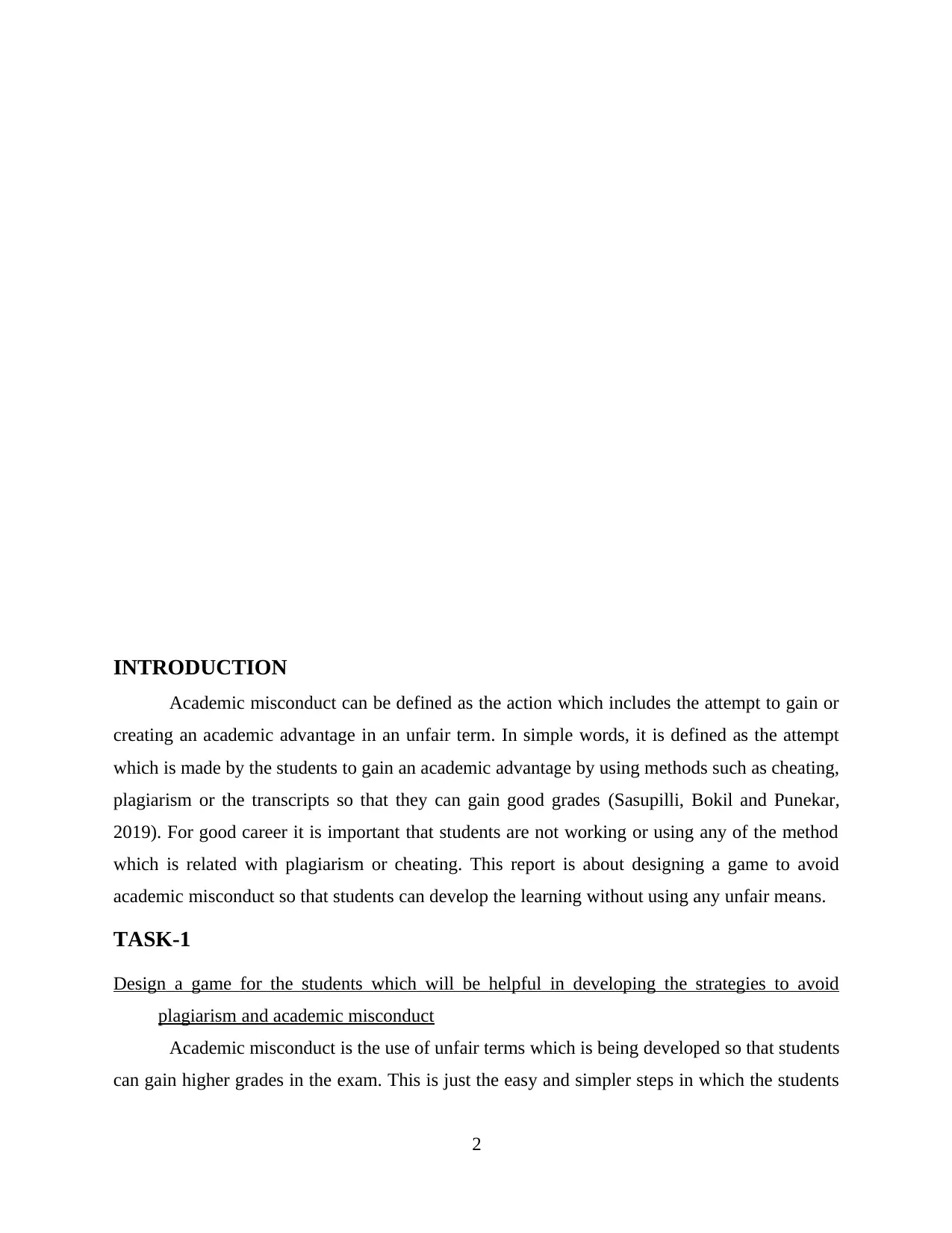

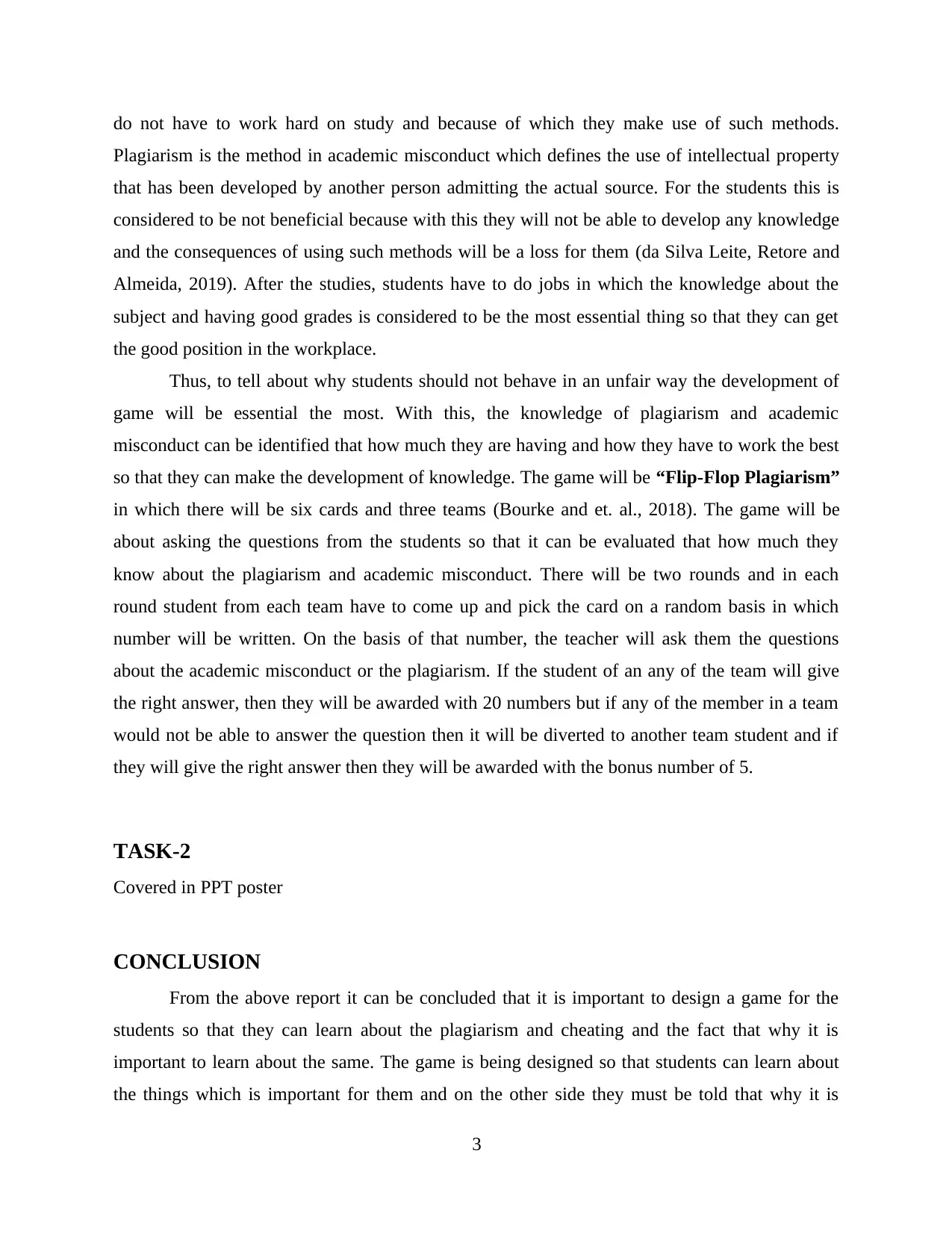
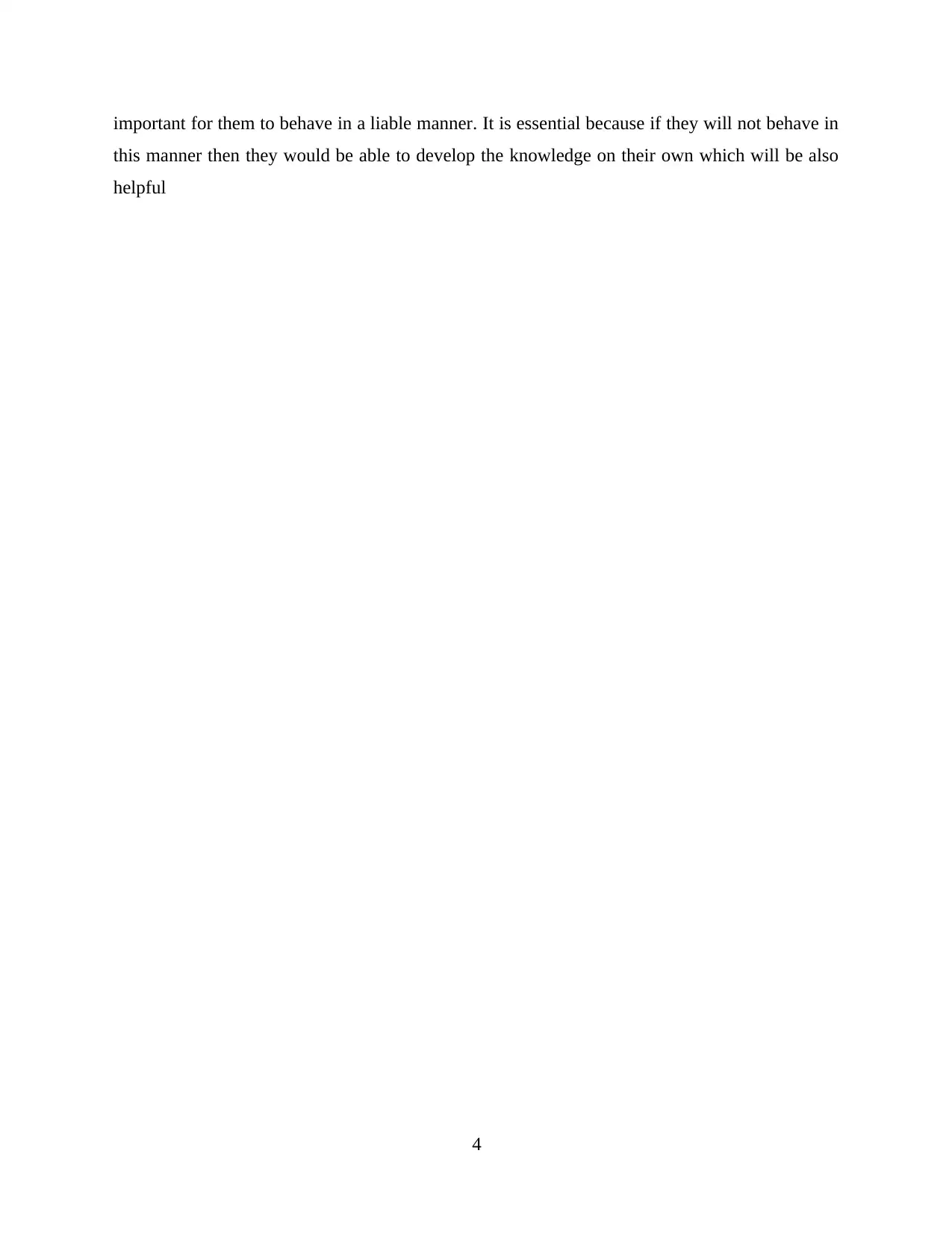
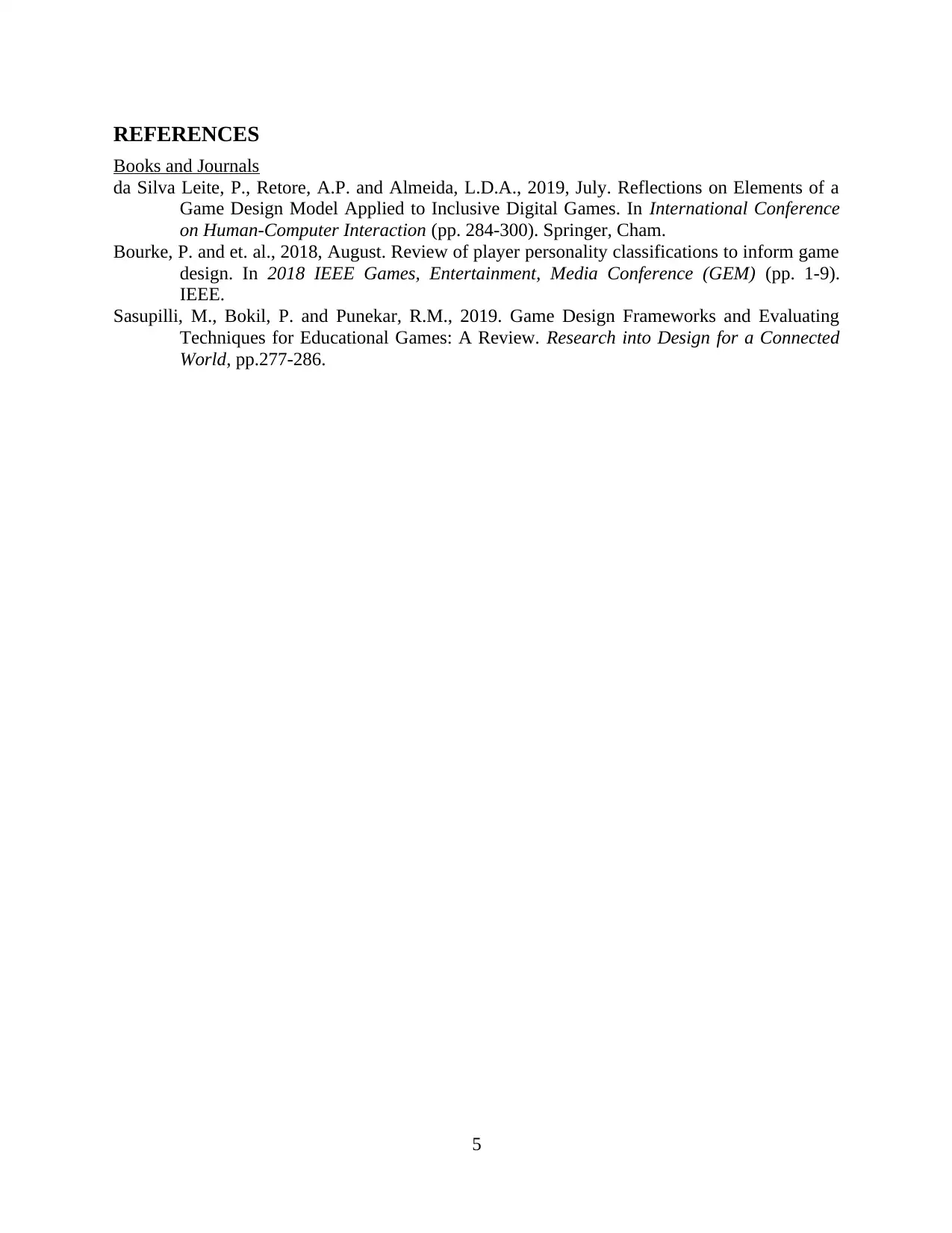



![[object Object]](/_next/static/media/star-bottom.7253800d.svg)